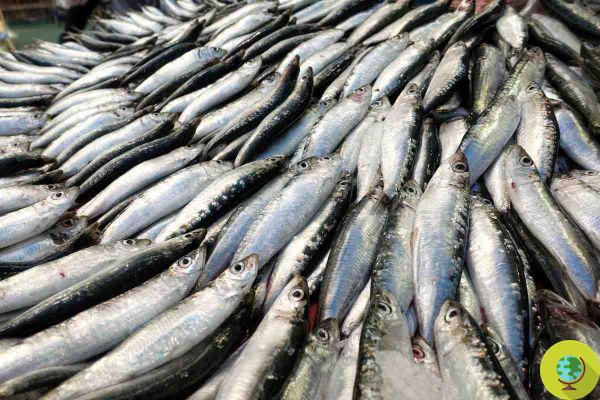
Climate change and overfishing are reducing the presence of omega 3 in fish. This is revealed by a new study
He is about to end up run over, his mother saves himClimate change and overfishing are reducing the presence of omega 3 in fish. This is revealed by a new study according to which millions of people around the world could face an increased risk of malnutrition since the climate crisis threatens local fishing, a source of livelihood.
The study, led by researchers at Lancaster University, looked at more than 800 fish species in over 157 countries and found that two main and growing pressures - climate change and overfishing - are affecting the availability of vital micronutrients for humans. , coming from the oceans.
In addition to fatty acids omega-3, fish are an important source of iron, zinc, calcium and vitamin A. Lack of these micronutrients is linked to conditions such as maternal mortality, stunted growth and pre-eclampsia.
Analyzes by the international group from the United Kingdom and Canada reveal that climate change is the most pervasive threat to the supply of essential micronutrients from marine fish catches and threatens the supply of those, such as omega 3, from the fishing in 40% of the countries involved.
In particular, those most at risk from the climate crisis are the countries located in tropical regions, from East Asia to the Pacific: Malaysia, Cambodia, Indonesia and East Timor, as well as sub-Saharan African countries such as Mozambique and Sierra Leone. .
This vulnerability to climate change for fisheries is particularly acute as dietary deficiencies of calcium, iron, zinc and vitamin A are particularly prevalent in the tropics. And tropical countries are also less resilient due to climate change because they depend heavily on fishing to support their national economies and the diet of the population.
On the other hand, other studies on the micronutrient content of fish, led by Professor Christina Hicks and published by Nature, have shown that fish are different when considering their nutritional content. A number of factors, such as diet, seawater temperature, and energy expenditure affect the amount of micronutrients they contain. Tropical fish tend to be richer in micronutrients than cold-water species.
However, climate change is upsetting the balance. Some countries may be able to adapt their fisheries to move from vulnerable to less endangered species that are currently under-represented in catches.
As climate change and overfishing are significant and growing pressures on global fish stocks, it is essential that the dietary needs of millions of people know the extent to which these pressures will weigh on the availability of micronutrients in our seas in the future. We have shown that climate change is the most pervasive threat to the supply of vital micronutrients for many countries around the world, and particularly in the tropics.
said Dr Eva Maire, of the University of Lancaster and lead author of the study.
According to scientists, in addition to highlighting the growing threat of the climate crisis for the food security for millions of people, the new study also offers hope for the future. Armed with nutritional information on different fish species, many countries have the ability to tailor their fishing policies towards more resilient fish species.
Sources of reference: Lancaster University, Current Biology
READ also:
- Omega 3 supplements: do you really need them if you don't eat fish or are vegetarian / vegan? No, if you follow this recommendation
- Fill up on Omega 3 every day with a handful of flax seeds
- We have a problem with Omega 3 supplements - not all of them would be effective for heart health


























